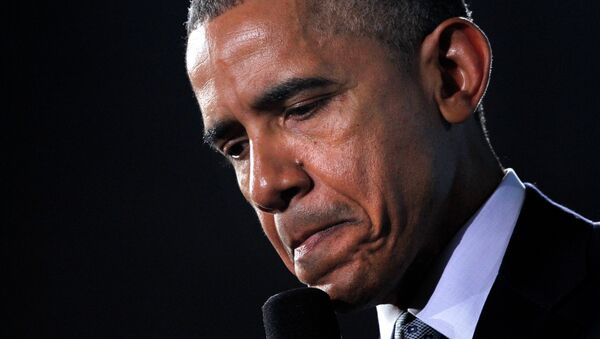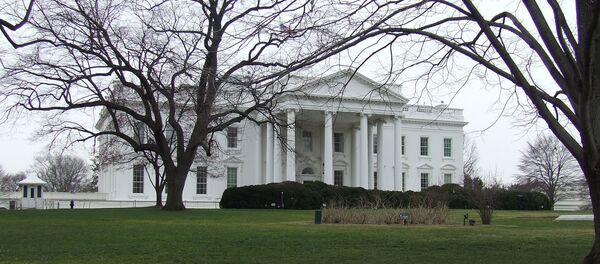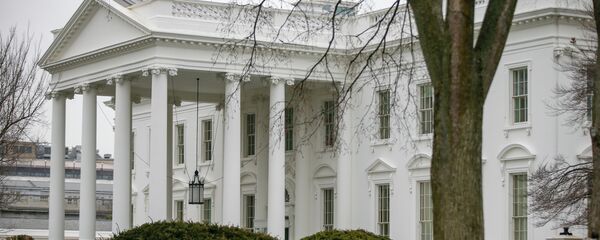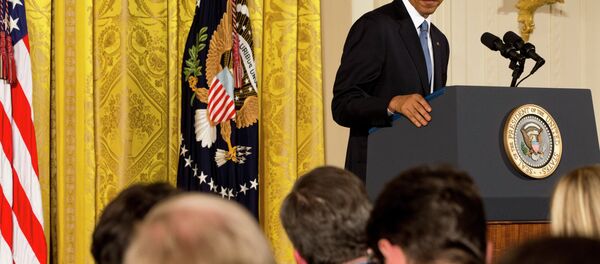In January 2009, a freshly reelected President Obama declared that he would be committed to an "unprecedented level of openness" with the public. But veteran journalists both at the White House and covering federal news nationwide have consistently said that is not at all the legacy Obama is building.
Obama Building Legacy of Press Obstruction
Journalists have been noting this White House's chilly demeanor towards the press for years. In December 2013, political reporter Ben Franken, then working for CNN, made headlines by characterizing it as the worst in the country's history, specifically referring to recent blocking of non-White House photographers from covering White House events.
"Well, let’s use the 'P' word here. This is propaganda when it comes from the White House: government covering the government," said Franken during an appearance on MSNBC Live. "It’s not what you’re supposed to do in the United States of America. But we have an administration, every president gets to the point where he dislikes the press. It’s that simple. And every administration tries to manipulate the press. But this is the most hostile to the media that has been in United States history."
— Gordon (@cmegalodon69) March 27, 2015
But it was the moves of the Justice Department towards aggressively pursuing leakers and whistleblowers that Franken said revealed "a contempt for the journalistic process" itself. The Obama administration has prosecuted 7 leakers of classified information under the Espionage Act — more than all previous administrations combined.
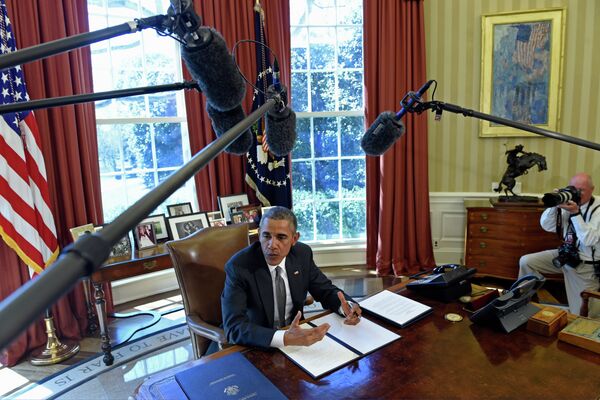
The Justice Department isn't the only agency under the executive branch that has become markedly more tight-fisted with information. While the White House told concerned journalists that the administration had processed a record number of FOIA requests, The Center for Effective Government gave 10 of the 15 most FOIA'd agencies either a D or F grade for responsiveness.
Just this month, Sputnik spoke with Society of Professional Journalists Chair David Cuillier after the White House moved to exempt its Office of Administration from Freedom of Information Act (FOIA) requests, saying there was no legal basis for including the agency.
“What this essentially does is allow president to hide that from the public if he or she wishes. That’s really counter to what FOIA is about and what we should be about as a country,” Cuillier stressed.
Not Just National Security Stories
But even reporters just trying to cover local stories — not national security scoops with leaked top secret documents — are finding unprecedented resistance to their investigations, the Washington Post reports.
For example, Stacey Singer, a health reporter in Florida, found herself stonewalled by officials at local, state and federal levels as she tried to uncover details of a record tuberculosis outbreak in the state. Even a federal official who had written a publicly available report on the outbreak would not speak to her about the story.
"It’s really expensive to fight this hard" for information that should be publicly available, Singer told the Post about putting together her story with various public records requests, a damaging process in an industry where time is of the essence. "They know that to delay is to deny.. . . They know we have to move on to other stories."
Former AP environment reporter Dina Cappiello never got an answer to her request for federal data about bird deaths on wind-energy farms in 2013, and she told the Post she suspected that the White House, which was trying to promote renewable energy, didn't want to taint the image of wind farms.
"I think the thread here is that all of these stories are questioning the goals and policies of the administration," said Cappiello. "All of these have the potential to set off controversy." And while she understood government desire to have a consistent message, she added that "they never seem to insist on having 'a truthful message.' I wonder why.""
A 2012 survey by the Society for Professional Journalists found that reporters ran up against a number of obstacles — from interviews being monitored by an administration "minder" to preapproval of interviews with agency employees to outright prohibition on interviewing agency employees. "
— Taylor (@taylored495) March 17, 2015
Eighty-five percent of those surveyed agreed with the statement that "The public is not getting the information it needs because of barriers agencies are imposing on journalists' reporting practices."
In the report, SPJ President John Ensslin called the trend "dismaying" and pointed out that a tight-lipped administration could be creating more problems for itself down the road.
"The strategy of spokespeople acting as the spigots of that information inevitably backfires by fostering leaks and intrigue instead of the sunshine of full disclosure.”

